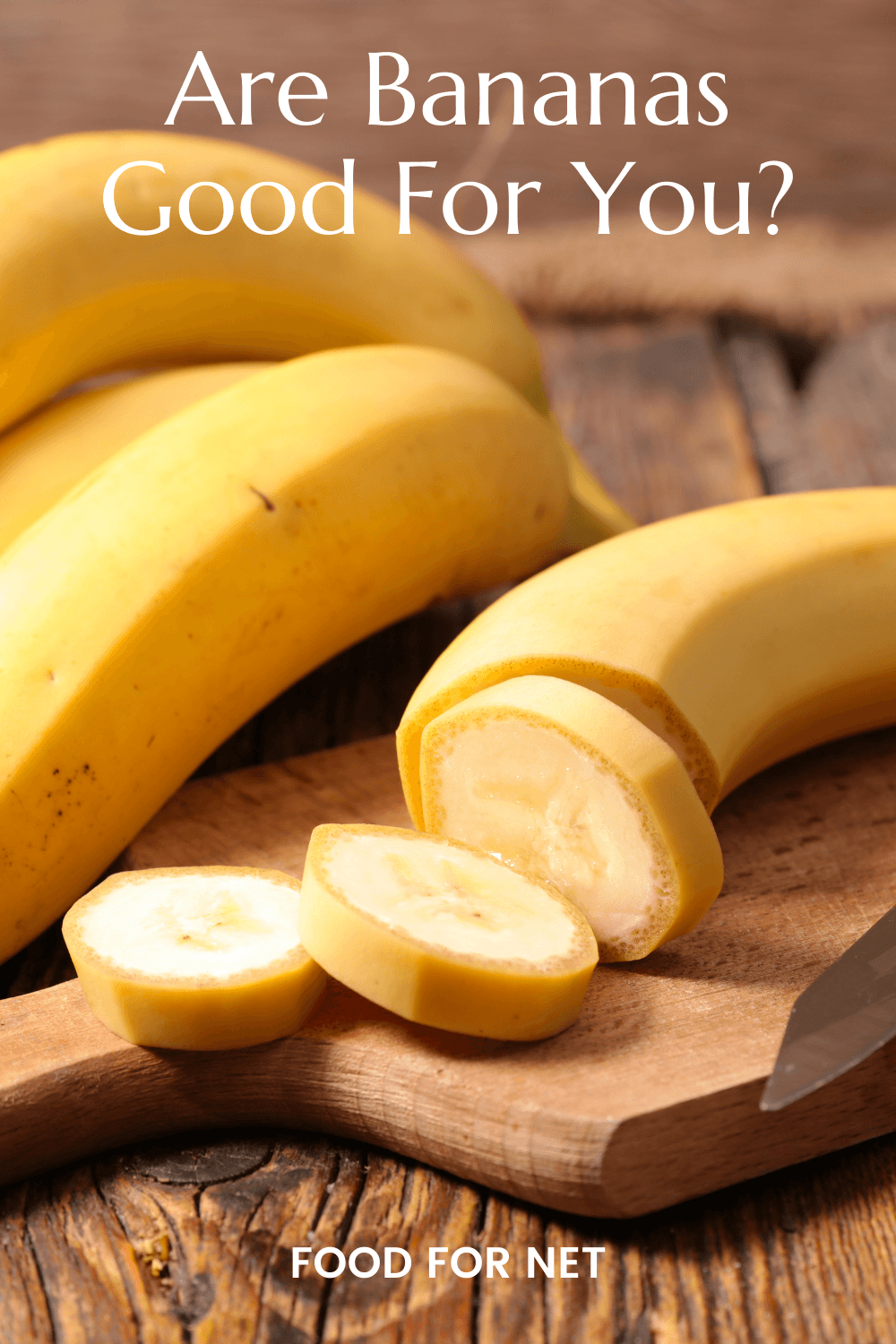
Bananas are delicious. They’re natural and they offer plenty of nutrients. They’re also extremely practical, acting as an easy snack to take on the go or an excellent smoothie ingredient (especially if they’ve been frozen first). It’s easy, then, to see why the fruit is popular. But, are bananas good for you?
The easy answer would be yes, given that bananas are rich in potassium, contain antioxidants, and give you other nutrients as well. However, we’re not interested in the easy answer here. The goal with these posts is to take a close look at the good and the not-so-good features for each type of food.
As it turns out, bananas are pretty controversial. While many people love them, plenty of others call them unhealthy, even saying that you should avoid them altogether.
Let’s take a look at why.
Are Bananas Good For You?
- The Problems With Bananas
- Benefits Of Bananas
- Are Green Bananas Healthier Than Yellow Ones?
- Can Diabetics Eat Bananas?
- Should You Use Bananas In Smoothies?
- How Many Bananas Should You Eat?
- Final Thoughts
The Problems With Bananas
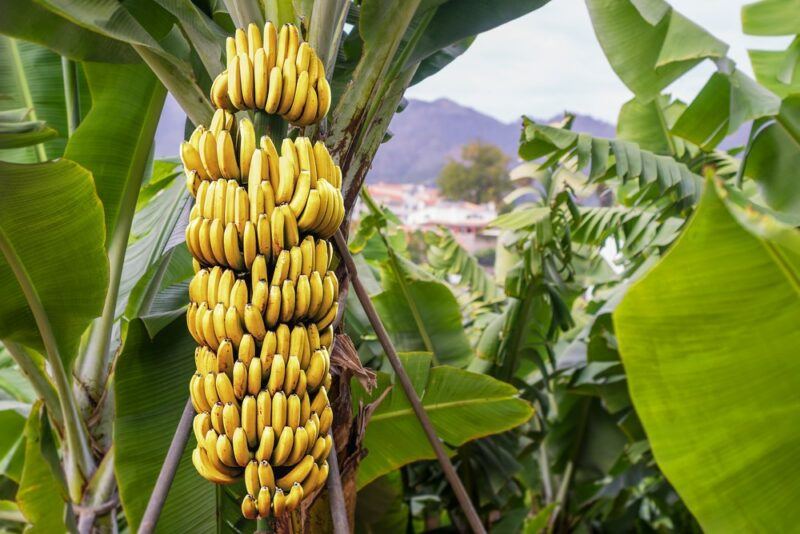
Let’s flip the script a little and start with all the reasons that bananas mightn’t be a good choice. There are plenty of benefits too and we’ll get to those soon enough. But, most of us already know the good features of bananas. It’s the bad ones that tend to slip under the radar.
They’re High In Starch And Sugar
Bananas contain more sugar than many other types of fruit, especially when they’re very ripe. For example, a medium banana provides around 14 grams of sugar and just 3 grams of fiber. That’s a lot of sugar per serving.
As such, bananas are a poor choice for anyone who needs to cut down their sugar intake.
Making matters worse is the fact that bananas are easy to snack on and are seen as healthy. Both of those features increase the risk that you’ll overdo it with bananas.
They’re A High Carb Food
Concerns about carbs are growing. It’s not just that carbs influence your blood sugar levels. Too many carbs could increase inflammation and lead to higher disease risk.
Bananas are a particularly poor choice, as more than 90% of their calories come from carbs. This is why low carb and keto dieters rarely eat bananas.
Carbs increase problems with blood sugar control too. This issue is even worse if you’re having carb rich foods on their own, rather than with sources of fat or protein. Doing so is common with bananas, given that we often eat them on their own.
Bananas Increase The Risk Of Cavities
Like any fruit, bananas contain sugar and that sugar can lead to cavities, especially if you don’t brush your teeth regularly.
That’s not all. Bananas tend to be sticky too, which can mean the sugar gets stuck to your teeth. Rinsing your mouth after having a banana may not be enough, so be sure to brush regularly.
They’re Not Satisfying
Bananas might be an easy snack, but they’re not a very helpful one. Because they’re high in sugar and starch, with little fat or protein to offer, they don’t keep you satisfied for long. You may get a blood sugar spike from them too, which doesn’t help your hunger one bit.
If you’re going to snack on bananas, make sure that you pair them with a source of protein too, like cottage cheese or peanut butter. This gives you a more satisfying snack – one that should keep you going for longer.
They May Promote Weight Gain
Bananas can easily make you gain weight. After all, they’re relatively high in calories and sugar, contain little protein, and aren’t satisfying. This combination of features isn’t what you want in a weight loss food at all.
Bananas are even more of an issue when you start adding them to smoothies, as it’s easy to underestimate how much sugar you’re adding. Seriously. Some recipes even call for two whole bananas.
Benefits Of Bananas
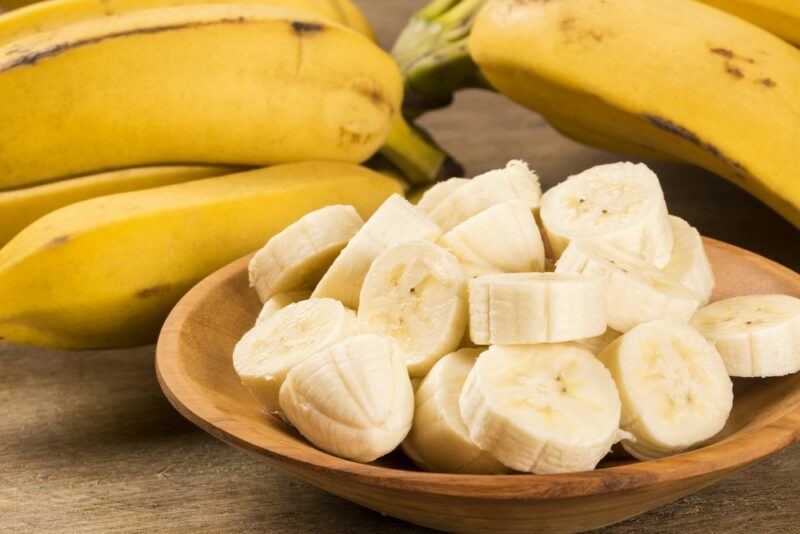
The Nutrients
Bananas are famous as a source of potassium, with a medium banana giving you roughly 12% of your daily potassium intake.
There are other important nutrients present too, including vitamin C, vitamin B6, magnesium, and manganese. Each of these nutrients can promote your health. For example, vitamin C is often thought to help with your immune system.
Vitamin B6 is relevant for your immune system too, along with your brain and nervous system. It even plays a role in serotonin production.
Then there’s the fiber. Bananas are never an amazing source of fiber (and even feature on low fiber food lists), but you do still get around 3 grams of fiber in a medium-sized banana. This is useful, as bananas are very easy to eat, more so than most fiber rich foods.
Still, bananas are lacking in some nutrients. They don’t contain much iron, calcium, vitamin D, or protein. You’ll need to get those nutrients from other foods, meaning that bananas shouldn’t be the only fruit in your diet.
The Plant-Based Compounds
Fruits and vegetables also contain a variety of plant-based compounds, including antioxidants. These compounds can all influence our health in a variety of ways.
Bananas even contain dopamine and serotonin. These are both neurotransmitters that can help to lift your mood and perhaps even help fight depression. But, don’t get too excited, as the dopamine and serotonin in bananas don’t directly influence your mood – they can’t cross the blood-brain barrier.
The compounds aren’t completely useless though, as they do act as antioxidants.
May Help With Constipation
Ripe bananas may help to relieve constipation, due to their soluble fiber content. It’s important to choose your bananas carefully here, as green bananas may have the opposite effect. You might even want over-ripe bananas, just to be on the safe side.
Don’t forget to listen to your body too because people respond to bananas differently. Some people even find that bananas back them up, rather than helping with their bowel movements.
They Provide Energy
With their high sugar and starch content, it shouldn’t be surprising that bananas help to energize you. They’re an easy choice when you need a fast boost of energy and are much healthier than processed alternatives.
They Might Help You Sleep
Despite their sugar content, bananas could help you sleep. This is because they contain some tryptophan, along with nutrients that promote sleep, including potassium and magnesium.
The combination of components should help to calm you down and relax your muscles, making it easier to drift off to sleep.
Besides, many of us do need a snack before bed. While going to bed on a full stomach isn’t a great plan, going to bed hungry certainly doesn’t help you sleep. Having a small snack, like a banana, could be just the ticket.
If you’re worried about a blood sugar spike, try having a source of protein with your banana, like some cheese or a glass of milk.
Are Green Bananas Healthier Than Yellow Ones?
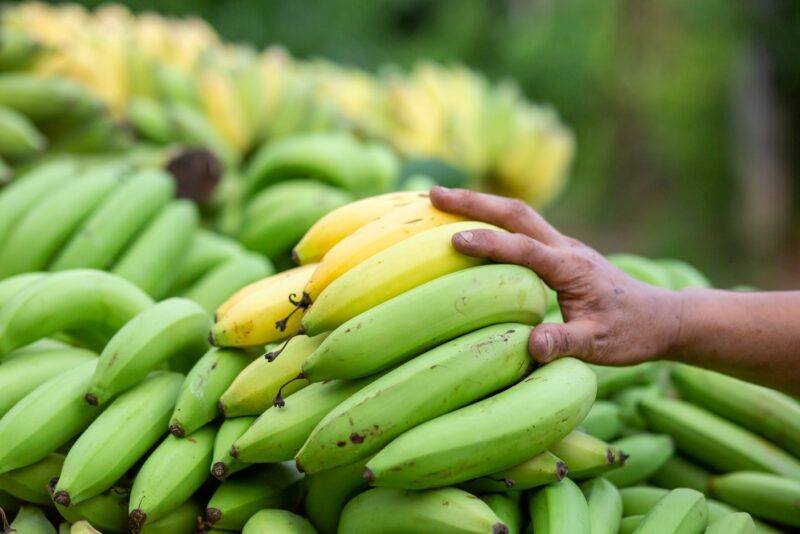
Many of us prefer the fully ripe bright yellow bananas. These are easily the most delicious and are perfect for smoothies.
Green bananas, on the other hand, aren’t ripe at all. They tend to be firmer and aren’t nearly as sweet as yellow bananas, although they’re still completely safe to eat. Some people even prefer the taste of green bananas.
Green bananas might be better for you too, as they’re full of resistant starch and pectin. These are both types of fiber that can help promote our gut health.
When bananas ripen, the pectin and starch are converted to sugars. As a result, yellow bananas are sweeter and contain more sugar than green ones. So, if you’re trying to cut down on sugar or carbs, green bananas are the healthiest choice.
Can Diabetics Eat Bananas?
The high sugar content of bananas makes them seem like a poor choice for anyone with diabetes. Indeed, articles on food for diabetics often suggest that you should avoid bananas entirely. But, that claim isn’t necessarily true.
Instead, many people with diabetes can and do eat bananas. Plus, the GI of bananas isn’t as high as you might expect. The most important thing is to pay attention to your blood sugar levels and see how they respond.
Try pairing bananas with a source of fat too, like a handful of walnuts, some mozzarella cheese, peanut butter, or avocado. The fat and protein from these ingredients help to balance the sugar in your banana and should lower your blood sugar response.
Diabetes care is always highly individualized, so you’ll need to experiment for yourself. It shouldn’t take too long to work out how often you can have bananas and what to pair them with.
Don’t forget about green bananas either. These may be a better choice, as their sugar content is much lower than fully ripe bananas.
Should You Use Bananas In Smoothies?
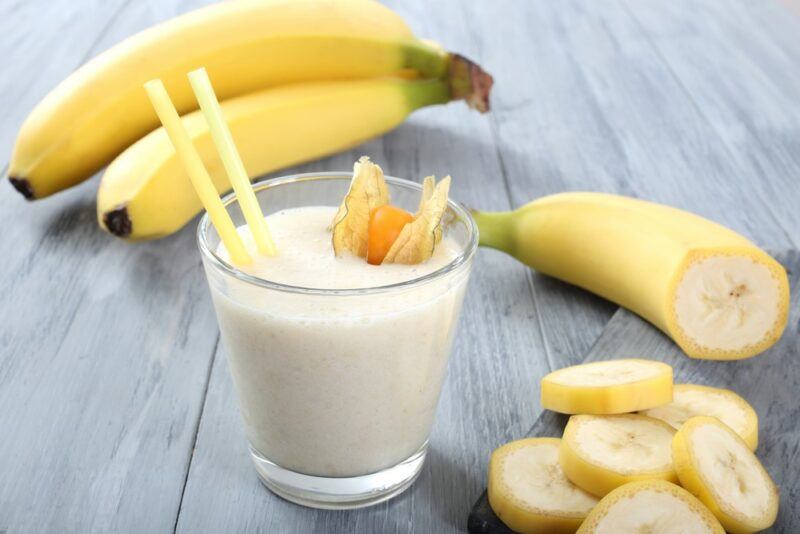
Bananas aren’t just a popular snack, they’re also common in smoothies. They work exceptionally well, giving you a delicious flavor and sweetness, along with a texture that few other ingredients offer.
Even apparently healthy smoothie recipes often rely on a banana or two.
This is where problems begin, as a large banana is essentially two servings of fruit anyway – and it’s rarely the only fruit in your smoothie. The calories and sugar from your various ingredients add up quickly. It doesn’t take much to give you a sugar bomb of a smoothie that isn’t nearly as nutritious as you expected.
If you’re going to use bananas, try focusing on just half a banana per smoothie, rather than a full one. Don’t forget to load up on nutritious ingredients too, particularly vegetables and some sources of protein.
How Many Bananas Should You Eat?
There’s no magic number of bananas that will make you healthy. Instead, the best amount will depend on your overall diet and your needs.
In general, you’re trying to keep your calorie intake at a reasonable level, while also getting all the nutrients in. If you’re managing this, then the number of bananas you take in per day shouldn’t really matter.
That being said, one or two bananas per day tends to be a good amount for most people. You may need to consume less than this if you’re watching your intake of sugar or carbs.
Some people suggest that eating too many bananas could kill you, due to the potassium content. There’s some truth to the claim, as while potassium is essential, too much of the mineral can cause serious problems. People with low kidney function are particularly vulnerable, as their bodies can’t process the excess potassium well.
Thankfully, healthy people have little to worry about. You’d need to eat hundreds of bananas per day to put yourself at risk of a potassium overdose.
If you are concerned about potassium intake or have kidney problems, then you’ll need to skip bananas for a while. Focus on low potassium foods instead, until your levels are where they should be.
Final Thoughts
There’s no denying the problems with bananas. Their high sugar and starch content, coupled with little fat or protein, means that they’re really not that nutritious. Sure you get some nutrients and antioxidants, but you can get those from other healthier fruits and vegetables.
Despite these patterns, you don’t need to banish bananas to the ‘never touch’ bin. Like every other type of food, bananas are versatile. They can still be used and enjoyed, as long as you’re careful.
There are even recipes for keto banana bread and banana smoothies. Some of these do use banana extract to avoid the sugar in bananas, but others rely on real bananas instead. Banana lovers might also want to try out banana liqueur. The best products are made by using real bananas, so you get a fantastic banana flavor that you can add to your cocktails, while avoiding some of the issues that come with real bananas.
Frequently Asked Questions
Are Bananas Keto Friendly?
No. Bananas are too high in carbs for keto, often giving you 20 net grams of carbs (or more!) in a single banana.
You will occasionally find keto banana recipes, like keto banana bread. However, many such recipes use banana essence rather than real bananas. Those that do include bananas tend to keep the quantities very low indeed.
Are Bananas Good For Weight Loss?
Fruit is always helpful for weight loss, as it gives you fiber, nutrients, and antioxidants. It’s also healthier than many processed snacks. This is true for bananas too.
Still, bananas are higher in sugar than many other fruits, so you must be cautious. To lose weight, you’ll need to keep an eye on your serving size and make sure you don’t go overboard.
You could also focus on green bananas rather than fully ripe ones. These are lower in sugar and provide plenty of resistant starch.
How Much Potassium Does A Banana Have?
A medium banana has around 420 mg of potassium, which is a decent amount. But, there are plenty of other decent sources of potassium, including guava, kiwis, and even baked potatoes.
Do Bananas Help You Sleep?
Bananas could be helpful, as they contain tryptophan, potassium, and magnesium, all of which could promote sleep. There’s also vitamin B6, which helps the body convert tryptophan to serotonin.
But, don’t expect a banana to make you drop off instantly, as sleep promoting foods tend to have subtle effects.
Are Bananas Low FODMAP?
Bananas are fairly high in oligofructans, which is a FODMAP. Because of this, you can only have around 33 grams of ripe bananas on a low FODMAP diet.
Unripe bananas are a different story. These are lower in oligofructans and you can often have a whole unripe banana and still be within your low FODMAP needs. That said, bananas are complex and low FODMAP quantities are influenced by the exact amount of firmness and the type of banana.



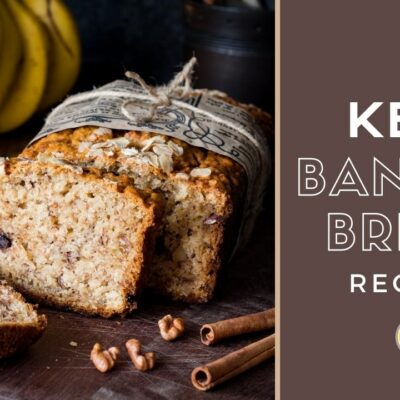

 The Best Skyy Vodka Flavors
The Best Skyy Vodka Flavors
Leave a Reply